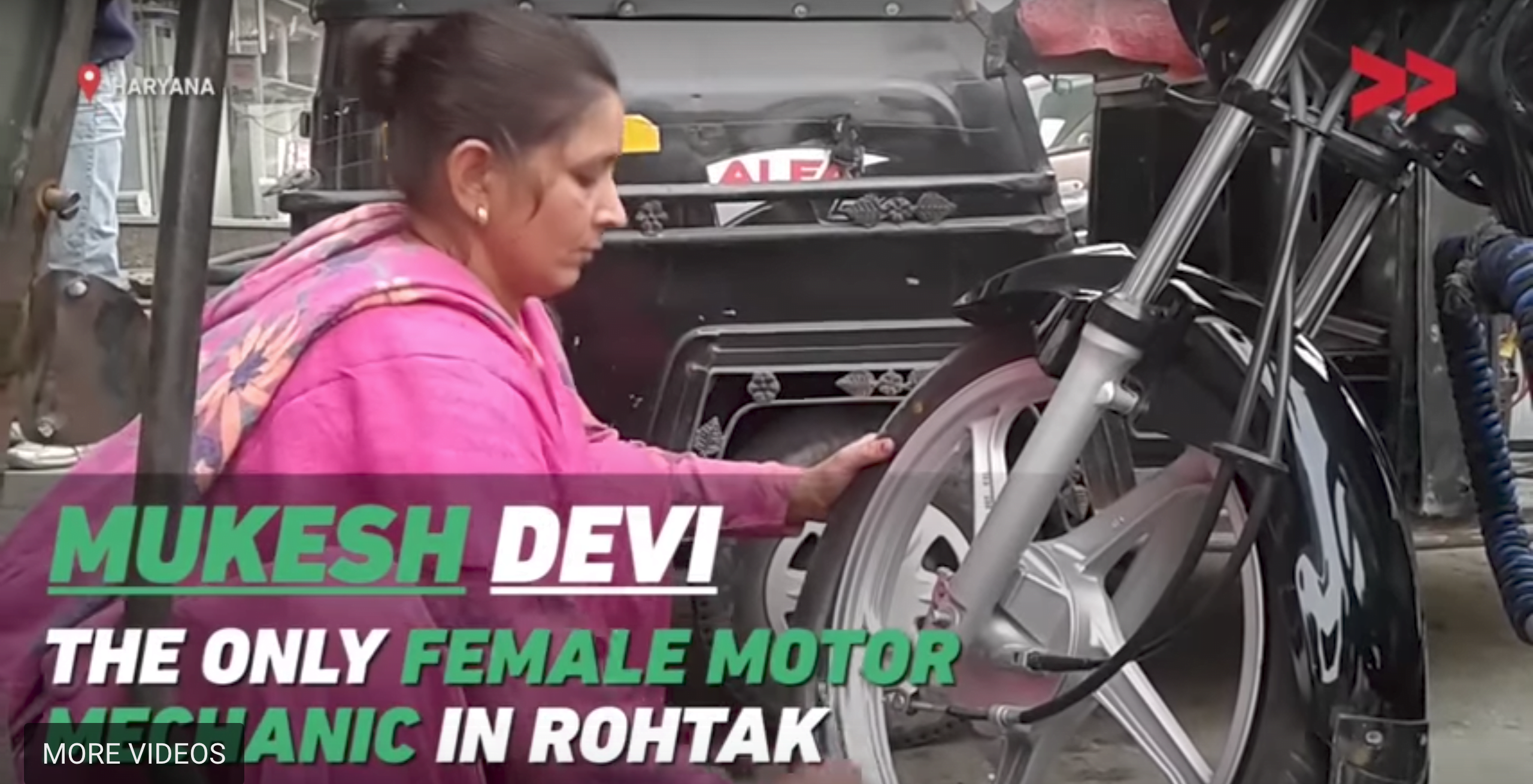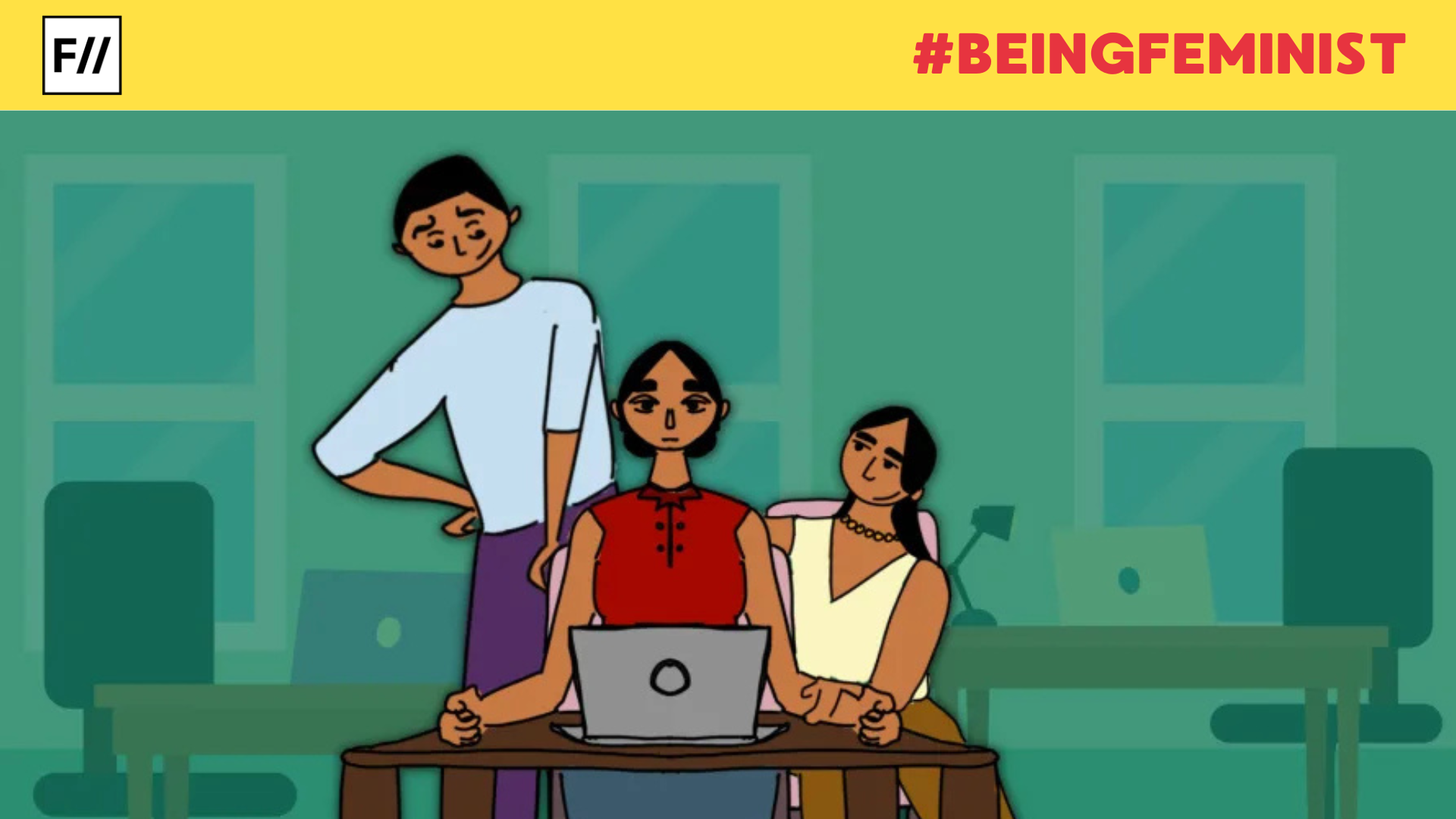Posted by Madhura Chakraborty
Every morning Mukesh Devi wakes up at 5 AM to finish her household chores before she heads out to work. Since her husband fell ill a few years back, she has taken over the family business in Rohtak, Haryana. One might be tempted to think that she’s just another urban Indian woman juggling her job and her family life. But as the sole breadwinner of her family, Mukesh Devi has broken all gender stereotypes when she took up the work of a motorcycle mechanic.
From honour killings and violence against women to high numbers of illegal sex-selective abortions, Haryana is one of the worst faring states on gender inequality. The 2011 National Census reported Haryana as having one of the worst sex ratios in the country. The median age of marriage amongst women in the state is well below 18. Last month, nearly 80 female high school students felt compelled to fast in protest when the authorities took no notice of their repeated complaints regarding street sexual harassment on their way to school.
Set against this backdrop Mukesh Devi’s achievement is nothing short of epic. She has broken every gender stereotype in the book by taking on a job that requires, what is seen as, an exclusively male skill. And she has done this in Rohtak where activists report it is unsafe for single women to be out in the public after six in the evening.
When Community Correspondent Reena Devi asks this trailblazer what she would have been had she not been a mechanic, she responds with a smile “I would have been a homemaker, what else?” Given the social reality that cannot imagine women in anything but their domestic and reproductive roles; Mukesh Devi’s presence on the road, fixing punctures and changing tyres, causes quite a stir in her hometown. “Some people stop and say ‘Look a lady is fixing a flat tyre!’ An old man came up to me the other day and asked me why I was doing this. He thought I was fixing my own vehicle. I told him this is my job. He stood up and saluted me!” she laughs.
“Some people stop and say ‘Look a lady is fixing a flat tyre!”
Mukesh Devi asserts “Women are no less than anyone today. We can do whatever we want to be it business or service.” Mukesh Devi certainly enjoys her economic freedom and the decision making powers that come with the job. And also the respect she commands for doing ‘a man’s job’. “It feels great when even accomplished people appreciate what I am doing,” she says. She has been invited to official programmes by the likes of the local Superintendent of Police, Pushpa Khatri.
But the sad truth is that it is nowhere close to an equal playing field. Despite her back breaking day job, she is expected to cook and feed her family before going to work; something that certainly was not expected of her husband when he was physically able to do the same job. Moreover, why is it that men are not lauded for doing women’s work? Patriarchy inherently values men’s work more than that of women. While it takes nothing away from Mukesh Devi’s extraordinary story of determination and grit in a hostile milieu, it is sobering to reflect on the persistence of everyday inequalities that we internalise through patriarchal values in our lives.
Also read: What Does It Mean To Be A Working Mother In A Rural Community?
About the author(s)
Video Volunteers works to centre the lived experience of marginalised communities in public discourse and decision-making. Over the past 20 years, we’ve supported community-led reporting models in India and globally, enabling people to document issues affecting their lives and push for accountability. In India, our network of Community Content Creators has produced over 18,000 videos on local governance and social justice issues, contributing to more than 3,200 documented resolutions and impacting over 42 million people. Our work focuses on strengthening accountability, amplifying citizen voice, and using accessible technology to make institutions more responsive.



